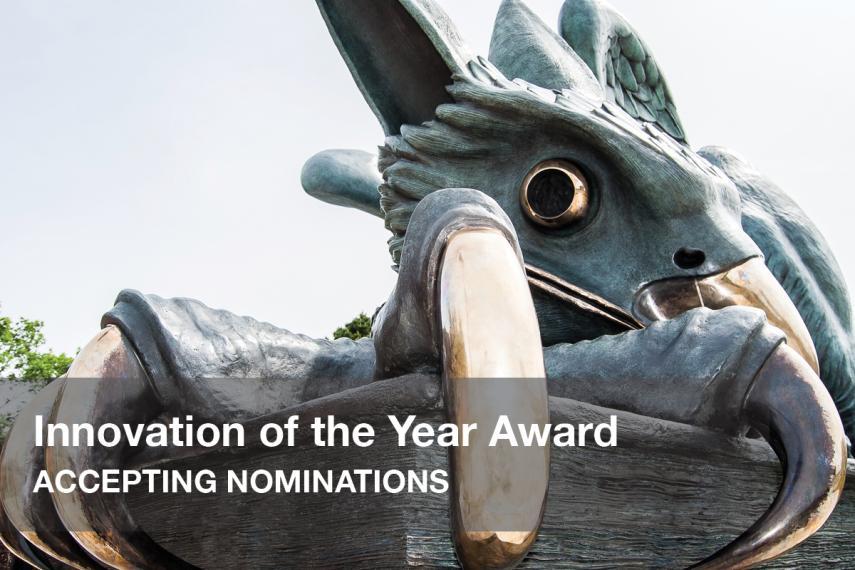Innovation of the Year Award

The University of Guelph has a long tradition of innovative research with real-world applications. The results can be found on farms, in labs, and even at the ice cream counter. Almost 100 years ago, Dr. Charles Zavitz developed cereal grains that benefited dairy farmers. Just over 50 years ago, Dr. Garnet Johnston developed the popular Yukon Gold potato, and recently Prof. Douglas Goff and his research team found a way to use banana waste to prevent ice cream from melting quickly.
Today, the University of Guelph’s Research Innovation Office officially recognizes and celebrates our homegrown, life-changing research through the Innovation of the Year Award. These innovations either made, or have the potential to make, a significant socioeconomic impact to Canada and the world beyond our borders. Since the award was initiated in 2016, five innovations representing work in six different departments have been recognized for their contribution to making life better.
In 2016, two teams tied for top prize. The team led by Dr. Mario Monteiro, Department of Chemistry, received the award for developing the world's first carbohydrate-based vaccine for Clostridium difficile (C. difficile). Engineering and Plant Agriculture Professor Amar Mohanty and his team helped reduce landfill waste with their fully compostable, single-serving coffee pods.
In 2017, the award recognized two University of Guelph innovations. Physics professor and Canada Research Chair John Dutcher was honoured for his work with sweet corn nanoparticles, while pathobiology professor Bonnie Mallard was recognized for her immuno-genetic testing technology for livestock.
In 2018, Food Science Professor emeritus Mansel Griffiths and Dr. Maira Medellin-Peña, MD, received the award for pioneering probiotic extracts that reduce the spread of harmful bacteria in livestock and companion animals. This research has potential for human applications.
“[This] work is an example of what the University stands for and demonstrates the vital importance of the research we conduct. The innovation achieved through persistent and tireless investigation is one that undoubtedly has the potential to improve life – whether by enhancing the life of farm animals or improving the general well-being of the human population,” says Malcolm Campbell, Vice-President (Research).
Real World Application
Since 2010, Griffiths and the University of Guelph have been working with start-up partner MicroSintesis Inc. So far, the company has conducted two clinical trials and launched four animal health products. MicroSintesis estimates the market applications for this innovative technology will be worth more than $12 billion. The value to the animals their research has helped is beyond measure.
Eligibility
Think your research has the potential to change the world, or at least make it better? To be eligible for the award, innovations must have:
- been made by faculty, staff, students and/or trainees while at University of Guelph
- generated social or economic impact within the past five years
How to Apply
Researchers can put themselves forward or be nominated by an outside party. Each nomination letter should be no more than 500 words and address the following criteria:
Inventiveness: The innovation must demonstrate creativity and novelty compared to what already exists.
Knowledge Mobilization and/or Commercialization: The innovation, whether a product or service, has been adopted into the marketplace or demonstrated social benefit.
Impact(s) within Canada and the world: Applications must provide evidence to demonstrate the current or potential impacts to society, health, the environment or economic development.
Next Deadline
The announcement for the next intake of submissions was made on May 21, 2019 at the Gryphons LAAIR Showcase and Pitch competition. The call for applications was also shared via Research Alert.
The awards will be presented in September.